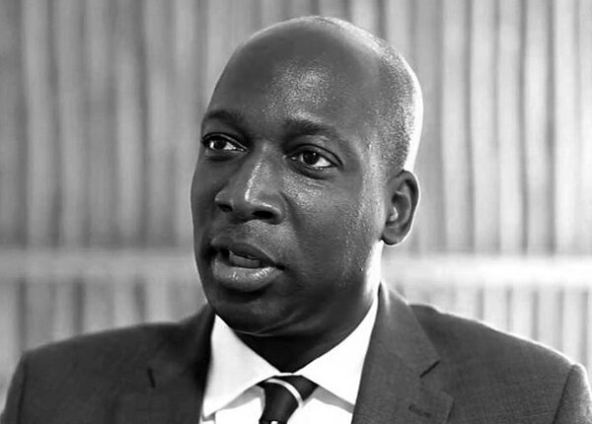As one of the few that went back to University Primary School (UPS), Legon, to become a teacher, I know that, largely, our parents kept that school going at very high-quality standards, through their meagre salaries.
There were regular deductions at source (Finance Officer deducted straight from their salaries). People like Professor Ebenezer Laing used their considerable international clout and stature to keep the school supplied with science materials.
Successive military governments had just abandoned the school.
This is not a question directed at UPS alone. It is a concern I have about the funding of all government-owned schools.
Government wants to remain 100% owner. It never thinks about ceding equity to fund education.
So, there are colossal charges to parents and sometimes donations or extractions from alumni. All over the world, I am told, alumni help fund schools.
But in several countries, considerable capital accumulation has taken place. We are relatively poor in Ghana, with inflation always eroding the base of our wealth.
Some private schools (and churches ) also use such models. Parents, alumni and congregations provide funds for infrastructure construction.
But they never become part owners. The public fund's property expansion of primary, secondary and tertiary education.
Is it right that the beleaguered Ghanaian middle class continues to be put under pressure like this? To fund schools, churches, cathedrals, water tanks at home, generators, private security, sometimes even roads, and other times health facilities?
Then, using orthodox economics, we say that the same middle class does not pay enough tax. After their employees (house helps, drivers, gardeners, etc.) have all extracted loans - many times not repaid? For healthcare, funerals, school fees, rent advance, and whatever else?
Do these neoliberals know what they are talking about? Or have we allowed a beggar mentality to take root in our society?
I have never believed in charity as an organising principle for society. The fundamental objectives of development in the long term must involve the elimination of the conditions that make charity necessary in the first place.
We want to do anything, for example, build a national cathedral. It is said that the private sector will fund it. Which private sector? Ghana's? How deep is it?
Perhaps it is time to reopen the conversation about funding public education, public health care etc. Someone must pay for anything good. The question is who and how?
Right now many in the elite just vote with their feet. Those who can afford it, simply move their children to prestigious schools. There they pay a significant premium as fees.
But when the same parents take their children to public institutions, the government insists on subsidising. Makes sense?
We must get serious about means testing. How can a country which has access to data on property owned; private purchase of airline tickets, cars, etc; phone bills; utility bills; taxes paid; etc., still insist that it is impossible to tell who can pay school fees?
So that a man who buys a Bugatti for several millions of dollars, can also potentially be a beneficiary of Free SHS.
I have some civil servants saying they need the state to pay SHS fees for their wards because they are poorly paid.
All is well and good until you start tallying their expenditure on phones, Brazilian hair, beer, funerals, side chics, etc. I say a man that can afford 'de facto polygamy' a.k.a side chics, should pay school fees for his children.
The inability to see that FSHS, a good thing in principle, needs tweaking to make it sustainable, is sad. It is another example of our capacity to avoid reality when we do not want to take tough decisions.
That is a failure both of imagination and leadership. It will eventually ruin many schools.
A system that keeps putting the middle class under such financial pressure from all this informal taxation, plants seeds of temptation to be corrupt.
Yaw Nsarkoh,
14 June 2023
Latest Stories
-
DAMC, Free Food Company, to distribute 10,000 packs of food to street kids
1 hour -
Kwame Boafo Akuffo: Court ruling on re-collation flawed
1 hour -
Samuel Yaw Adusei: The strategist behind NDC’s electoral security in Ashanti region
1 hour -
I’m confident posterity will judge my performance well – Akufo-Addo
2 hours -
Syria’s minorities seek security as country charts new future
2 hours -
Prof. Nana Aba Appiah Amfo re-appointed as Vice-Chancellor of the University of Ghana
2 hours -
German police probe market attack security and warnings
2 hours -
Grief and anger in Magdeburg after Christmas market attack
2 hours -
Baltasar Coin becomes first Ghanaian meme coin to hit DEX Screener at $100K market cap
3 hours -
EC blames re-collation of disputed results on widespread lawlessness by party supporters
4 hours -
Top 20 Ghanaian songs released in 2024
4 hours -
Beating Messi’s Inter Miami to MLS Cup feels amazing – Joseph Paintsil
4 hours -
NDC administration will reverse all ‘last-minute’ gov’t employee promotions – Asiedu Nketiah
4 hours -
Kudus sights ‘authority and kingship’ for elephant stool celebration
4 hours -
We’ll embrace cutting-edge technologies to address emerging healthcare needs – Prof. Antwi-Kusi
5 hours

